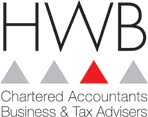Yesterday, Chancellor of the Exchequer George Osborne delivered his first Budget less than three months after the final Budget of the last parliament. The Conservative Party promised action to bring down the UK’s record budget deficit and this was top of his list. It was agreed before the budget that £6bn of cuts would be found in the current financial year and Mr Osborne, together with his coalition partners from the Liberal Democrats, had to send out a strong message to exercise tough love, balancing the need to raise taxes and cut spending with the dangers of provoking a ‘double dip’ recession. Businesses
The Chancellor supported businesses offering a clear map for business tax over the life of this Parliament. Corporation tax rates for both large and small companies will be reduced; the main rate from 28% to 24% over four years and the small companies’ rate to 20%. To compensate for these reductions in headline rates, capital allowances will be reduced slightly and the annual investment allowance cut back from £100,000 to £25,000.
Tax evasion
This coalition Government are still as hot on tracking down tax evaders.A summary of the key proposals:
Tracy Jenkins
Tax Director
The Chancellor supported businesses offering a clear map for business tax over the life of this Parliament. Corporation tax rates for both large and small companies will be reduced; the main rate from 28% to 24% over four years and the small companies’ rate to 20%. To compensate for these reductions in headline rates, capital allowances will be reduced slightly and the annual investment allowance cut back from £100,000 to £25,000.
Tax increases
An increase in VAT rate to 20% and an increase in the CGT rate were favourites in this Budget. VAT was increased to 20% but only from 4 January 2010, thereby giving consumers six months to make purchases at the old rate of 17.5%. In addition, anti-forestalling arrangements will seek to stop partly exempt businesses entering into arrangements avoid the effect of the increase in the VAT rate. It was no surprise that CGT was increased, given that the difference between the CGT rate (18%) and the top rate of income tax (50%) would be 32% this year. In the event, a new CGT rate was introduced of 28%. However, the new rate only applies where total taxable gains and income are more that the upper limit of the income tax basic rate band; gains below that limit will be taxed at the 18% rate. This will add complexity to the CGT system. Further complications to the 2010/11 tax calculations will arise because the new rate applies from part-way through the year, to disposals on or after 23 June 2010. However, there was probably a need to act quickly to shore up leakage as taxpayers sought to convert income into capital.
Spending cuts
Announcements were made that will impact on welfare benefits, with tax credits for the higher paid, housing benefit and disability living allowance being in the firing line.
This coalition Government are still as hot on tracking down tax evaders.A summary of the key proposals:
- Tax-free personal allowance increased by £1,000 to £7,475. Higher-rate threshold frozen until 2013/14.
- VAT to increase to 20 per cent on 4 January 2011. No increases in tobacco, alcohol or fuel duty.
- Capital Gains Tax increased to 28 per cent for higher-rate taxpayers from midnight of Budget day. Rate unchanged for lower-rate taxpayers and 10 per cent rate for entrepreneurs extended to first £5million of gains.
- Corporation Tax reduced to 24 per cent for large firms and 20 per cent for small firms. Annual Investment Allowance reduced from £100,000 to £25,000.
- £5,000 National Insurance cut for new firms creating jobs outside London and the South-East.
- Bank levy from January 2011 to raise £2billion per year.
- Planned Landline Duty dropped.
- Government to work with local authorities to freeze Council Tax.
- State pension to be linked to average earnings and always increased in line with earnings, inflation or 2.5 per cent (whichever is greater).
- Other benefits to be linked to Consumer Prices Index, instead of Retail Prices Index.
- Two-year pay freeze for workers in public sector.
With these changes in place and with everyone "doing their bit" Mr Osborne has announced the economic balance should be even in 2015/2016.
Tracy Jenkins
Tax Director


